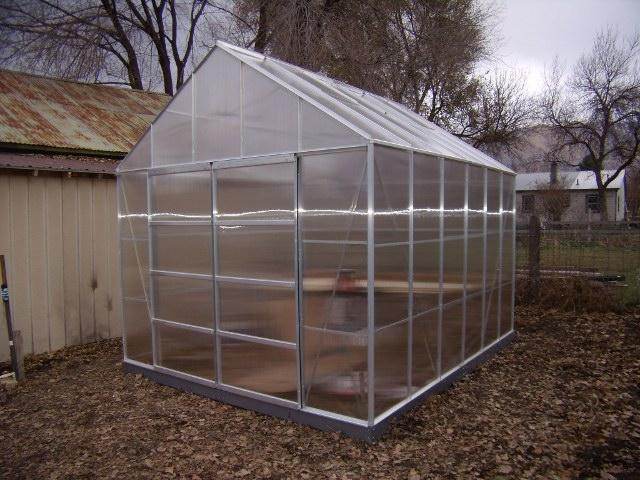
 2
2




 4
4




Love is the only resource that grows the more you use it.
David Brower
 4
4
























Love is the only resource that grows the more you use it.
David Brower




Irene Mouthaan wrote:
What do you do with the cotton? Do you get enough to make fabric or do you use it for something else?
.








 1
1













Owner, Etta Place Cider




Irene Mouthaan wrote:
Leila: What climate do you live in? Do the citrus/avocado trees give fruit? Growing citrus or avocados in the Netherlands would be kickass.
 1
1









Joseph Lofthouse wrote:
My growing season is very short, so one purpose for my greenhouse is to get a head-start on the season. That allows me to grow plants like fava beans, tomatoes, okra, and peppers that don't do very well here if direct seeded.
Another purpose of my greenhouse is to get earlier harvests, because the best prices of the year at the farmer's market are for first-to-market crops.
Space in my 10 foot by 12 foot greenhouse is limited. Therefore, the plants that go into the greenhouse are primarily oriented towards crops that can pay for themselves...
I currently have fava beans germinating in the greenhouse. Favas are a crop that is not yet very locally-adapted to my climate, so I am using the greenhouse as a way to get older plants into the ground in cooler weather, so that they can set seed while the weather is still cool. I may eventually develop a variety of favas that do well here when direct seeded. In the meantime, the greenhouse allows me to season-shift the favas by a few weeks. And they will be out of the greenhouse before I need the space for tomato transplants.
I also have a crop of my earliest shelling pea germinating in the greenhouse. The plan is to plant out peas that are a month old, at the same time as I normally direct seed peas. Perhaps I can be first to market with shelling peas.
I devote most of the space in the greenhouse to tomatoes in early spring. I aim to have 6 week old transplants to go into the field on about June 5th.
After June 5th, I intend to grow sweet potatoes and teosinte in the greenhouse this summer. I think they might benefit from the warmer temperatures and longer growing season. I think that potted plants are more valuable than growing food crops out of season, so even though I might plant spinach or bok-choi in the floor of the greenhouse, it gets chopped out when I need the space for a flat of potted plants, or for a breeding project.
Also, around here, the greenhouse is more humid than outside, so I might store the mushroom logs in it, or root cuttings.
leila hamaya wrote:
Irene Mouthaan wrote:
Leila: What climate do you live in? Do the citrus/avocado trees give fruit? Growing citrus or avocados in the Netherlands would be kickass.
well thats the idea! we will see how it goes. most of the citrus are very young, but some of the older ones should produce fruit this year.
i live in USDA zone 8. i dont know how that corresponds, you said you were in zone 7? is it similar?
here i am zone pushing to try to keep the lemons and avocado happy, but so far i have managed to keep them alive...the young mandarins and lemons have been through a couple of winters now...with the help of the cover. it doesnt make it that much warmer than outside, but our temperatures rarely fall below 25 F...and usually only for short periods of time if they do get into the 20's...





 2
2




Works at a residential alternative high school in the Himalayas SECMOL.org . "Back home" is Cape Cod, E Coast USA.




 1
1




 1
1











|
As if that wasn't enough, a dog then peed on the tiny ad.
Learn Permaculture through a little hard work
https://wheaton-labs.com/bootcamp
|




